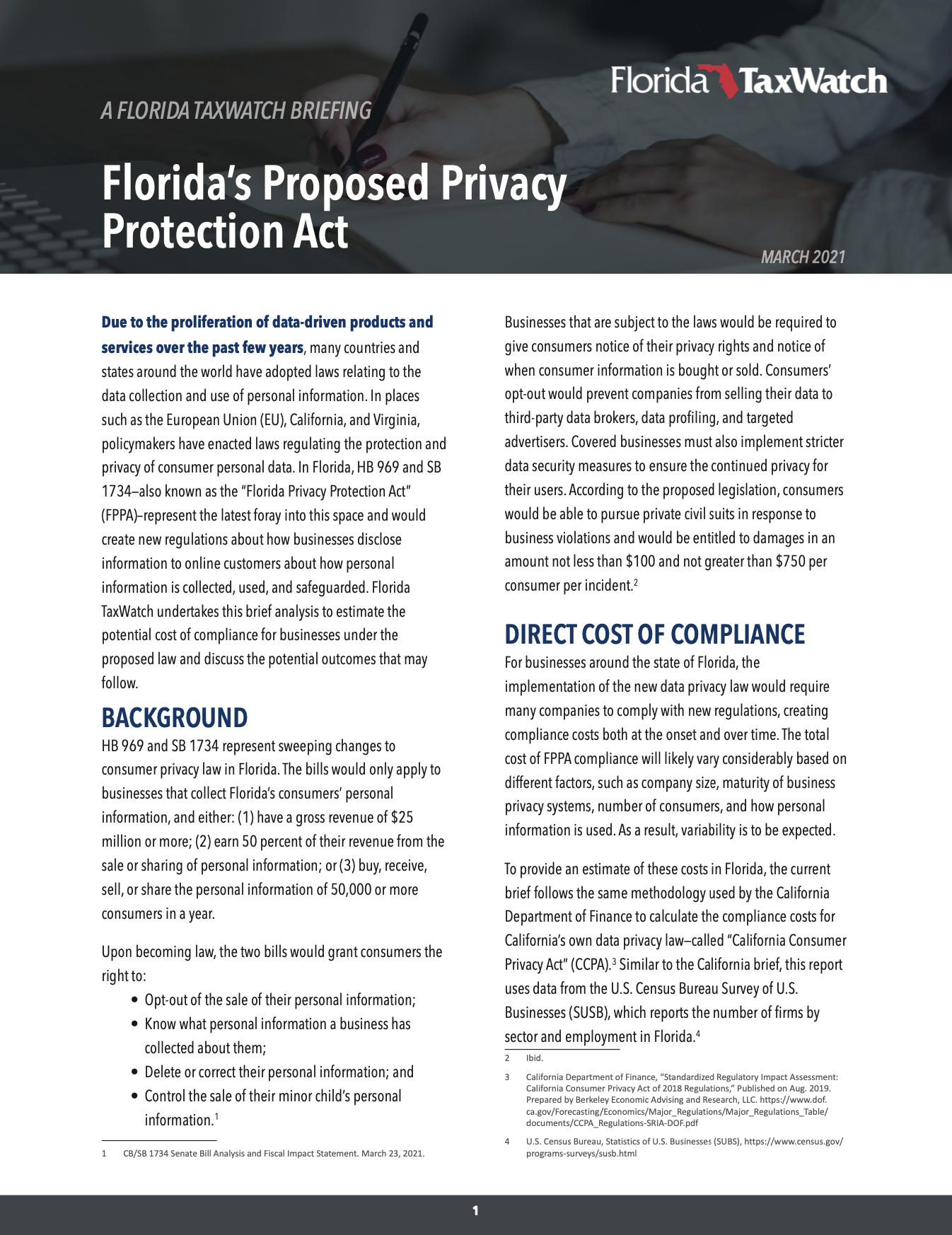Florida’s Proposed Privacy Protection Act

Due to the proliferation of data-driven products and services over the past few years, many countries and states around the world have adopted laws relating to the data collection and use of personal information. In Florida, HB 969 and SB 1734—also known as the “Florida Privacy Protection Act” (FPPA)–represent the latest foray into this space and would create new regulations about how businesses disclose information to online customers about how personal information is collected, used, and safeguarded. Businesses that are subject to the laws would be required to give consumers notice of their privacy rights and notice of when consumer information is bought or sold. Consumers’ opt-out would prevent companies from selling their data to third-party data brokers, data profiling, and targeted advertisers.
For businesses around the state of Florida, the implementation of the new data privacy law would require many companies to comply with new regulations, creating compliance costs both at the onset and over time. Incorporating the SUSB data specific to Florida, the total cost of initial compliance for FPPA is estimated at $36.5 billion, constituting the vast majority of compliance efforts and representing 3.3 percent of Florida’s Gross State Product in 2019. Beyond the initial cost of compliance, companies will also incur costs for ongoing compliance over successive years; however, a bulk of the overall compliance costs will be at the onset of any privacy law enactment (roughly $36.5 billion).
ANALYSIS:
- SMALL BUSINESSES ARE LIKELY TO FACE A DISPROPORTIONATELY HIGHER SHARE OF COMPLIANCE COSTS RELATIVE TO LARGER ENTERPRISES.
- DATA PRIVACY REGULATION MAY SERVE AS A DISINCENTIVE FOR COMPANIES TO RELOCATE TO FLORIDA.
- CONSUMERS MAY DERIVE AN ECONOMIC BENEFIT FROM PRIVACY PROTECTIONS GRANTED BY THE PROPOSED LAW CHANGES.
- DIFFERENTIAL BENEFITS TO CONSUMERS LARGELY BASED ON INCOME DIFFERENCES MAY INTRODUCE EQUITY CONCERNS.
- THE PROPOSED PRIVACY LAWS MAY INTRODUCE A BOON IN PRIVATE LITIGATION, CREATING ADDITIONAL COSTS FOR COMPANIES AND OCCUPYING MORE RESOURCES FROM COURTS.
Florida TaxWatch recommends that state policymakers take cost estimates into mind while considering data privacy legislation. Specifically, TaxWatch recommends that policymakers analyze the unintentional costs that may accrue to smaller businesses in the wake of these legislative changes, and weigh them against the potential benefits to consumers from greater data privacy. Due to the pandemic’s ongoing strain on Florida’s economic recovery, and in the absence of accurate compliance cost estimates for businesses within Florida, state policymakers should at least first conduct a formal economic impact analysis to study the possible effects of the law change and delay implementation beyond January 1, 2022 until more can be known.